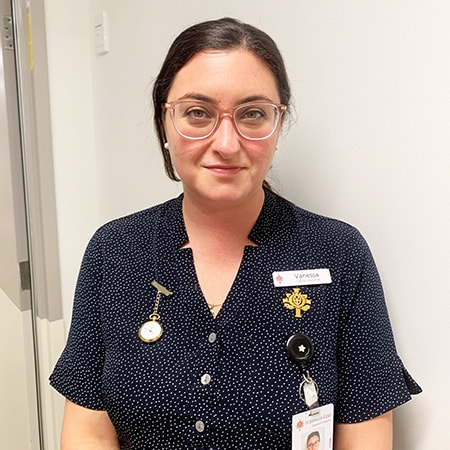Hyperparathyroidism is a condition that affects one to two per cent of the population and tends to go under the radar due to the vague symptoms that present.
The good news is, treatment is available through a minimally invasive day surgery and has very successful outcomes.
About hyperparathyroidism
The parathyroid glands are small glands of the endocrine system located in the neck behind the thyroid. They control the amount of calcium in our bones and blood. Usually we have four parathyroid glands that are normally the size of a grain of rice.
Hyperparathyroidism occurs when one or more of the glands grows into a tumour and makes excess parathyroid hormone, known as PTH.
PTH raises blood levels of calcium by increasing intestinal absorption of calcium and by dissolving calcium from the bone into the bloodstream.
Hyperparathyroidism is very unlikely to be a cancer issue, but it does have a huge impact on your wellbeing.
Symptoms of hyperparathyroidism
The possible symptoms of hyperparathyroidism include:
- fatigue, you don’t feel well and are constantly tired
- sleep difficulties, interrupted sleep with lack of concentration during the day
- excessive urination
- headache that doesn’t go away
- mood swings and your family reports that you are harder to get along with
- aches and pains in bones and joints.
In advanced cases you may have:
- kidney stones
- osteoporosis and bone fracture
- pancreatitis (inflamed pancreas)
- psychotic illness
- heart disease and palpitations.
How is hyperparathyroidism diagnosed?
A blood test is used to identify elevated levels of calcium and PTH. Normal PTH levels are between one and seven. If your level is higher than seven you will be referred to see an endocrine surgeon.
A further diagnostic test such as an ultrasound or nuclear medicine scan may be offered to look for tumours that may be causing these levels.
If a tumour is found, you may be recommended minimally invasive surgery to remove the affected gland. Subsequent blood test results will indicate a decrease in PTH levels back to its normal value immediately after the procedure.
If a tumour cannot be detected by a scan, you will have a four-gland exploration where all the glands can be found and only the abnormal one(s) will be removed.
Negative scans usually means that more than one gland is affected.
What to do if you are concerned?
If you feel you have any of these symptoms, talk to your GP about having your blood tested.
You never know, it might be worth your while to have it investigated.








